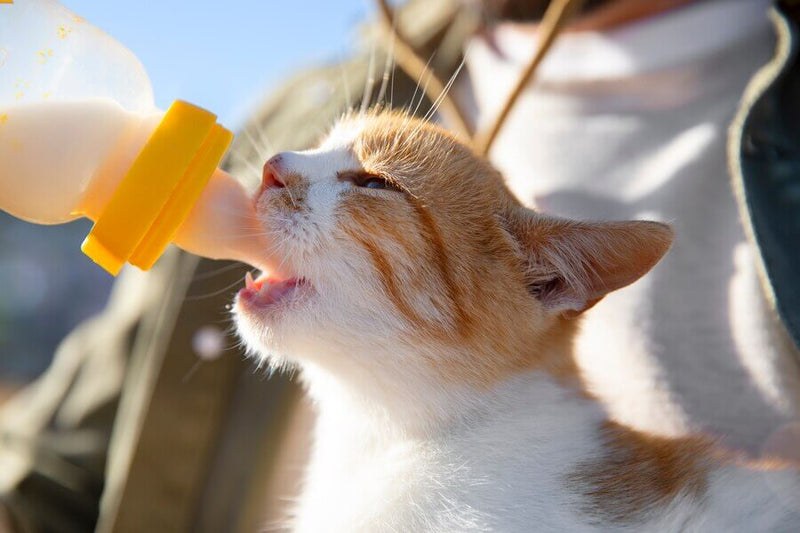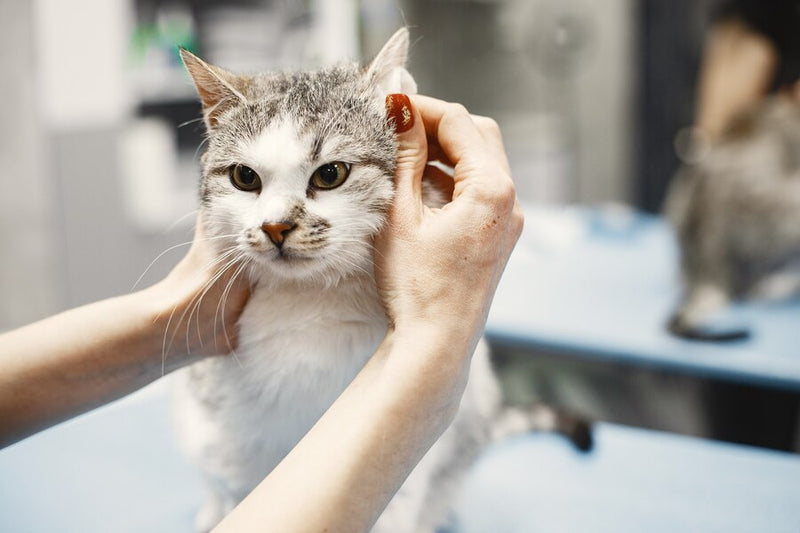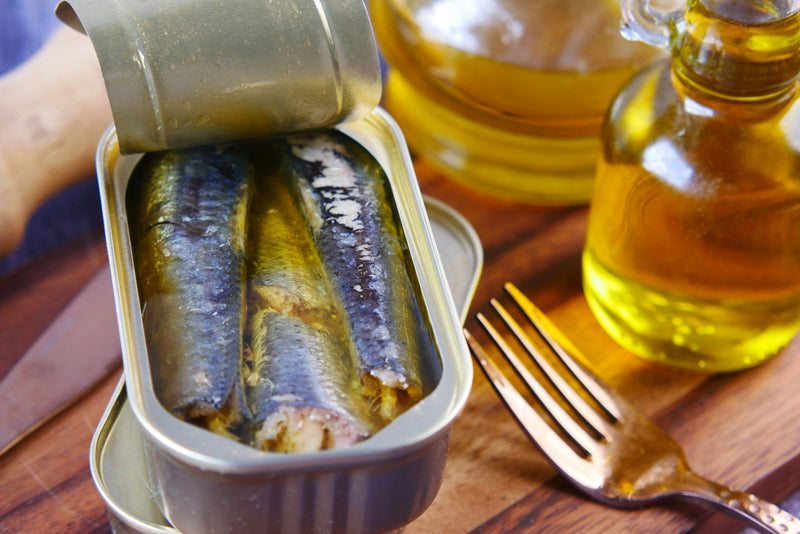
Welcome to Gritty Pet Co.
Your Canadian, specialty Pet Health & Wellness destination. 🇨🇦

Vet Reviewed & Approved
Dr. Ibrar A. is our veterinarian and a key member of our team. ✅
What do fish eat? That is our topic for today, and sharing everything you need to ensure a thriving aquarium is our purpose. It's not just about keeping the tank clean or the water at the right temperature; it's about understanding the unique dietary needs of your aquatic residents. Our guide simplifies the process, ensuring your fish not only survive but that they flourish.
Key Takeaways
- Know Your Fish's Diet: Whether your aquarium residents are carnivores, herbivores, or omnivores greatly influences their nutritional requirements. Flakes, pellets, frozen, and live foods cater to different species, so identifying your fish's natural preferences and requirements is crucial for their health and happiness.
- Quality and Variety Matter: Incorporating a mix of high-quality foods that align with your fish's nutritional needs—not just proteins, but essential fats and vitamins too—ensures a balanced diet and optimal health. Varied diets prevent nutritional deficiencies and enhance the vibrant colours and vitality of your fish.
- Observe and Adjust: Monitoring how your fish interact with their food can offer invaluable insights into their well-being. Signs of overfeeding or underfeeding can affect water quality and fish health. Utilizing feeding techniques such as varied diets, scheduled feedings, and possibly automated feeders can lead to a harmonious aquarium environment.
What do Fish Eat?: Our Comprehensive Guide
Knowing your fish species and community is the crucial first step in selecting the right food for them, thereby ensuring their health, vitality, and longevity. Carnivorous, herbivorous, or omnivorous fish species each have their own unique dietary requirements.

Carnivorous Fish: Diet and Care for Common Aquarium Predators
In the home aquarium, carnivorous fish like Bettas, Jack Dempseys, and Red Tail Sharks require diets rich in proteins, ideally consisting of 40% to 55% protein. Ideal food choices include live or frozen bloodworms, tubifex worms, and brine shrimp, which cater to their needs for meaty proteins. Fatty mammal meats, such as beef, chicken, or pork should be avoided, and caution should be taken with live feeder fish to prevent the spread of diseases. It's crucial to monitor feeding to prevent obesity and organ damage, and to ensure that these predators receive a balanced diet that supports their health and natural hunting and foraging instincts.
Herbivorous Fish: Plant-Based Nutrition for Peaceful Tank Mates
For herbivorous species such as Plecostomus (Plecos), Siamese Algae Eaters, and certain Cichlid species, a diet high in fiber from plant materials is essential. Their food must contain roughly 25-30% protein which can be sourced through algae wafers, quality vegetable-based flakes, and fresh veggies, like spinach, celery, and zucchini (wash them well before offering them to your fish!). Herbivorous fish have long digestive systems designed for processing vegetation, so it's important to maintain a balanced diet supplemented with commercial foods to provide all necessary nutrients and ensure that their dietary needs are fully met.
Omnivorous Fish: Flexible Feeding for Diverse Diets
Omnivorous fish in home aquariums, such as Mollies, Swordtails, and Gouramis require a diet that includes both plant and animal matter at a 30-40% protein level. A variety of flakes, pellets, and frozen foods, complemented with plant-based foods, ensures they receive a well-rounded diet. Providing a mix of food types meets their nutritional needs, supports a healthy immune system, and reduces stress, promoting a balanced and thriving aquatic environment for these adaptable species.
Types of Fish Food
Flakes are ideal for small to medium-sized fish and surface feeders, providing a balanced diet for a variety of species.
Pellets come in floating and sinking varieties, suitable for larger fish or species that feed at different water levels.
Frozen foods offer high-quality nutrition similar to a natural diet, perfect for carnivorous and omnivorous fish.
Live foods, such as brine shrimp or bloodworms, stimulate natural hunting behaviours and are essential for carnivorous and omnivorous fish.
Specialty foods cater to specific dietary needs like colour enhancement, breeding, or medicated foods for health issues.
Our Top 5 Actionable Advice:
Know Your Fish: Research the specific dietary needs of your fish species to provide the appropriate food types.
Quality Over Quantity: Choose high-quality commercial foods and fresh ingredients to ensure a nutritious diet.
Moderation is Key: Feed in small quantities to prevent overfeeding, which can lead to water quality issues and health problems.
Diet Diversity: Rotate foods to provide a varied diet, especially important for omnivorous fish to meet their complex nutritional requirements.
Observation and Adjustment: Monitor your fish's health and behaviour to adjust their diet as needed, ensuring they remain active and vibrant.
Avoiding Overfeeding: A Fine Line Between Care and Harm
Less Is Often More: It's a common instinct to feed our fish generously out of the belief that we are supporting them. However, overfeeding can lead to more than just a messy tank—it can cause health issues for your fish and disrupt the balance of your tank's ecosystem.
Observing your fish during feeding times and adjusting portions to ensure all food is consumed within a few minutes can prevent overfeeding. Remember, a healthy feeding routine isn't just about the quantity; it's about the quality and frequency of meals. By feeding your fish the right amount, you are keeping their home clean and supporting their longevity.
Water Quality and Nutrient Levels: Balancing Act for Aquarium Health
Keeping the Waters Clear: The health of your aquarium is mirrored in the clarity and quality of its water. But did you know that what you feed your fish plays a pivotal role in this delicate ecosystem? Nutrients from fish food can affect water parameters, tipping the balance towards either a thriving aquatic environment or one that's struggling.
Regular testing and mindful feeding practices can help maintain the perfect harmony in your aquatic haven, ensuring your fish swim happily in pristine waters.
Feeding as a Bonding Activity
Feeding time is more than a necessity; it's a golden opportunity to bond with your aquatic friends. By engaging directly during these moments, such as using feeding tools for live foods, you not only enhance the feeding experience but also establish trust. Observing your fish's behaviour during feedings can provide insights into their health. Keeping feeding times consistent helps your fish recognize and anticipate these interactions, creating a routine that both you and your fish can look forward to.

Seasonal Adjustments
FAQ
1. How Do I Choose The Right Food For My Fish?
Understanding your fish's dietary category (carnivore, herbivore, omnivore) and preferences (dry, frozen, live foods) is crucial. Research their specific needs including food size and whether they require floating or sinking foods. Quality and taste also matter to ensure the food gets eaten and provides nutritional variety.
2. How Often Should I Feed My Fish?
Most adult fish thrive on one feeding per day, but for more enjoyment, you could split this into two smaller meals. Young, growing fish, or those that are slow grazers, might need more frequent feedings. Consider the type of fish and their natural eating habits when setting a feeding schedule.
3. Can I Overfeed My Fish? What Are The Signs?
Yes, overfeeding is a common issue. Signs include swollen bellies, excessive waste, lack of interest in food, and water quality problems like cloudy water or increased algae growth. To avoid overfeeding, observe your fish's eating behavior and adjust portions accordingly.
4. Is Fasting Good For My Fish?
Fasting can be beneficial for certain fish species to prevent overfeeding issues and mimic natural feeding patterns. Some aquarists skip feeding one day a week to allow fish to clear their digestive systems, though this depends on the fish species and their specific needs.
5. How Do I Know If I'm Feeding My Fish The Right Amount?
Instead of sticking strictly to a time limit, observe the roundness of your fish's belly from top and side views. Aim for a slightly rotund abdomen without excessive bulging, keeping in mind the natural body shape of your fish species. Adjust the food quantity based on their physical response. Please note that the body proportions of breeding fish may change due to non-food-related factors.
Top 3 YouTube Videos on What to Feed you Fish
1. Does Food Quality Matter to Your Fish?
Why Watch : Unravel the truth behind fish food quality and its impact on your aquatic friends. A great resource for understanding how to enhance your fish's health and aquarium life.
2. Stop Wasting Money on Fish Food!
Why Watch : Discover how to choose the best and most cost-effective food for your fish, ensuring they receive the nutrition they need without unnecessary expense.
3. How to Pick the Best Fish Foods
Why Watch : Learn the secrets to selecting fish foods that your aquarium dwellers can’t resist. This video provides practical tips for feeding your fish what they love and need.
The Bottom Line
Feeding your fish is an integral part of aquarium care, blending science with a touch of intuition. By understanding the specific needs of your aquatic friends, employing advanced feeding techniques, and maintaining a vigilant eye on their health and habitat, you can create a thriving underwater world.
Engage with your fish, observe their behaviors, and adjust your practices as needed. Your aquarium is a living, breathing ecosystem that flourishes under attentive care.

















